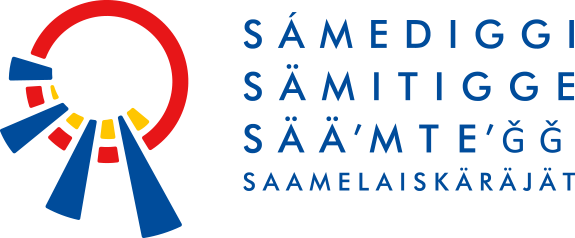The Sámi Language Act
The Sámi people’s linguistic and cultural rights’ foundation lies in the Constitution of Finland, which guarantees the Sámi the right to maintain and develop their language and culture. Under the Constitution, the Sámi have the right to self-government in matters that concern their language and culture within the Sámi homeland, as provided by law.
In addition to the Constitution, Sámi rights are further specified in the Sámi Parliament Act (974/1995) and the Sámi Language Act (1086/2003).
The core area of application of the Sámi Language Act is the Sámi homeland, which consists of the municipalities of Inari, Enontekiö, Utsjoki and the northern part of Sodankylä. According to the Sámi Language Act, Sámi people have the right to use either Finnish or Sámi when dealing with public authorities. Whether or not a Sámi speaking person also speaks Finnish, the authority must still provide services in Sámi if the person so wishes.
The Purpose of the Sámi Language Act
- Safeguard the Sámi people’s right to maintain and develop their language
- Guarantee the Sámi people’s right to a fair trial and good governance, regardless of language
- Make Sámi-language services accessible and natural
- Ensure that Sámi language rights are realised without having to appeal to them separately
- Implement the Sámi people’s right to use their language in practice, not only through interpretation and document translation
- Promote the use of the Sámi language across all sectors of society
- Ensure the language remains living and vibrant
Which authorities does the Sámi Language Act apply to?
Within the Sámi homeland, the Sámi language may be used, for example, in the following authorities:
- Health care centres
- Municipal offices
- Employment and Business Development Services
- Tax Administration
- Police
- Social Insurance Institution of Finland (Kela)
- Lapland Central Hospital
- National Land Survey of Finland
- Farmers’ Social Insurance Institution (Mela)
- Local Register Office of Lapland
The scope of application of the Sámi Language Act also includes:
Courts and state regional and local administrative authorities, whose jurisdiction covers the above-mentioned municipalities wholly or partly.
- The Sámi Parliament and the Skolt Saami Siida Administration referred to in the Skolt Act
- The Chancellor of Justice and the Parliamentary Ombudsman, the Consumer Ombudsman, the Consumer Disputes Board, the Non-Discrimination Ombudsman, Ombudsman for Equality, and the Data Protection Ombudsman
- The reindeer herding cooperatives within the Sámi homeland and the Reindeer Herders’ Association.
- Church authorities: the Chapter of the Diocese of Oulu and administrative office of parish, whose area of operation covers the Sámi homeland wholly or partly.
- The parishes of Enontekiö, Inari, Utsjoki and Sodankylä, and the Orthodox Church’s parish of Lapland
The Sámi Language Act also contains provisions on its application to public institutions and companies, as well as to private entities that perform administrative tasks on behalf of the public sector. The basis of this provision is that the level of language services must not be diminished because public authorities delegate their tasks to others.
Section 31 of the Sámi Language Act, government's financial responsibility
- Municipalities, parishes, reindeer herding cooperatives and other entities may apply for state subsidies to cover costs arising from the application of the Sámi Language Act.
The annual government subsidy distributed amounts to 250 000€
Read more on the Ministry of Justice’s website:



